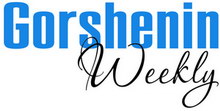
Summary report from the recent Wilton Park conference: Turkey’s policies for engagement in the contemporary world 
(150 Kb)
The timing of this conference could not have been more appropriate, and backdrop relevant. The Arab Spring that has spread across the Middle East and North Africa highlights Turkey’s growing importance in the region and the role it can play in facilitating transition to democratic governance throughout these regions.
Turkey is a secular and democratic state, and yet there has been much discussion about Turkey’s renewed ties with its neighbours. It has been viewed, by some, as evidence of Turkey turning away from its traditional alliances with the West. READ MORE
- EGF Editorial |
Published on EGF: 21.07.2011
| External Relations
-
Five good reasons to be sceptical about the "Arab Spring" 
(126 Kb)
There is a certain understanding amongst Middle East politics experts that a game breaking event of cataclysmic proportions hits the region once every ten years or so. September of this year will mark the 10th anniversary of the unimaginable acts of terrorism which were perpetrated in New York in September 2001 by Arab suicide bombers.
- Dr. Marat Terterov |
Published on EGF: 18.07.2011
| External Relations
-
EGF Turkey File 
(85 Kb)
Insights into Turkish domestic and international politics during June 2011
Key Points:
- Despite the fact that the ruling AKP did not gain the electoral majority it requiredto unilaterally re-write the country’s constitution, the party continues to be the overwhelmingly dominant player in the Turkish political landscape.
- As was inevitably the case with Turkey’s position towards Libya following prolonged civil conflict in the country, Ankara’s position towards Syria is slowly but surely adjusting towards a tougher stance
- Turkey continues to keep one foot in Nabucco’s door, and the other in bilateral energy arrangements with neighbouring states. READ MORE
- EGF Editorial |
Published on EGF: 14.07.2011
| External Relations
-
Political transition and the rise of Islamist politics in post-revolution Tunisia 
(122 Kb)

By Naim Ameur,
Senior Manager, Prime Ministry of Tunisia
EGF Affiliated Expert on Maghreb politics
Tunisia embarks upon the process of transition to democracy
It is now a well established fact amongst both the general public as well as the specialist of Middle Eastern politics that Tunisia under the almost-quarter century long rule of former President, Zine el Abidine Ben Ali, was managed by a highly restrictive and rather authoritarian political system. The system empowered key pro-regime political instruments such as the Constitutional Democratic Rally simultaneously to ensuring that opposition political parties remained largely powerless or even being loyal to the regime. Other regime opponents, such as Tunisia’s Islamists, found themselves in exile and for the most part expelled from the country. While this is not surprising, given the dearth of democratic political culture in the Middle East and North Africa (MENA), this likewise ensured that the country remained a “political wasteland” under its former president, who created what some local scholars now refer to as “political desertification”. READ MORE
- Naim Ameur |
Published on EGF: 11.07.2011
| External Relations
-
Court starts hearing «gas case» against Tymoshenko 
(2 Mb)

ISSUE #23
06/27/2011
On 24 June 2011, the Kiev Pecherskyy district court started a preliminary
hearing of the criminal case against Ukrainian opposition leader and former
Prime Minister Yuliya Tymoshenko.
She is accused of abusing power, which allegedly took place when she signed gas
contracts with Russia in 2009. READ MORE
- Gorshenin Weekly |
Published on EGF: 29.06.2011
| External Relations
-
Rejecting FTZ will close doors to Ukraine entering the European Union – Experts 
(149 Kb)

Gorshenin Institute conducted a round table called “The relations between Ukraine and Russia after Ukraine signs the FTZ agreement with the EU”, where experts discussed the future of Ukrainian-Russian relations in the event of Ukraine signing the Free Trade Zone Agreement with Europe.
The President of expert consulting firm “NEOKON”, Mikhail Khazin, thinks that if Ukraine enters a Free Trade Zone with the EU it can lose the Russian market and a number of its industries. READ MORE
- Gorshenin Institute |
Published on EGF: 29.06.2011
| External Relations
-
Ukraine fails again to receive gas discount from Russia 
(2 Mb)

ISSUE #21
06/13/2011
On 7 June 2011, Ukrainian Prime Minister Mykola Azarov visited Moscow.
During his visit, the Ukrainian prime minister and his Russian counterpart,
Vladimir Putin, participated in a meeting of the Committee on Economic
Cooperation of the Ukrainian-Russian Interstate Commission. READ MORE
- Gorshenin Weekly |
Published on EGF: 17.06.2011
| External Relations
-
Gas relations between Ukraine and Russia - Expert poll 
(123 Kb)

Gas negotiations were derailed, there will be a scandal at the end of the year - Experts
The Gorshenin Institute has held a round table devoted to the topic of “GAS RELATIONS BETWEEN UKRAINE AND RUSSIA” during which experts discussed the prospects for revising the gas contracts and the future of the Ukrainian gas transportation system. READ MORE
- Gorshenin Institute |
Published on EGF: 17.06.2011
| External Relations
-
Ukrainian Parliament passes pension reform 
(2 Mb)

ISSUE #25
07/11/2011
On 8 July 2011, the Supreme Council of Ukraine adopted the law on pension
reform, which was drawn up by the Ukrainian Cabinet of Ministers.
The law envisions that the retirement age for women will be gradually raised from 55
to 60 years, the work history requirement for a pension will be increased by 10 years
for both men and women and the maximum pension will be limited to 10 minimum
wages. READ MORE
- Gorshenin Weekly |
Published on EGF: 17.06.2011
| External Relations
-
EGF Turkey File 
(145 Kb)
A snapshot of Turkey’s domestic and regional politics during May 2011
Key Points:
- Uprisings in the Middle East continue to make diplomacy a difficult game to master for leaders in Turkey, with Syria’s potential implosion being a matter of great concern for those in power in Ankara.
- With Parliamentary elections scheduled for June 12, and the AKP seeing stronger challenges across the political spectrum, tensions are on the rise in the country. It is unlikely, however, that the AKP will face electoral defeat.
- The Nabucco pipeline continues to be mired in uncertainty as Brussels has not been able to persuade suppliers to sign on to the project. READ MORE
- EGF Editorial |
Published on EGF: 06.06.2011
| External Relations
-
